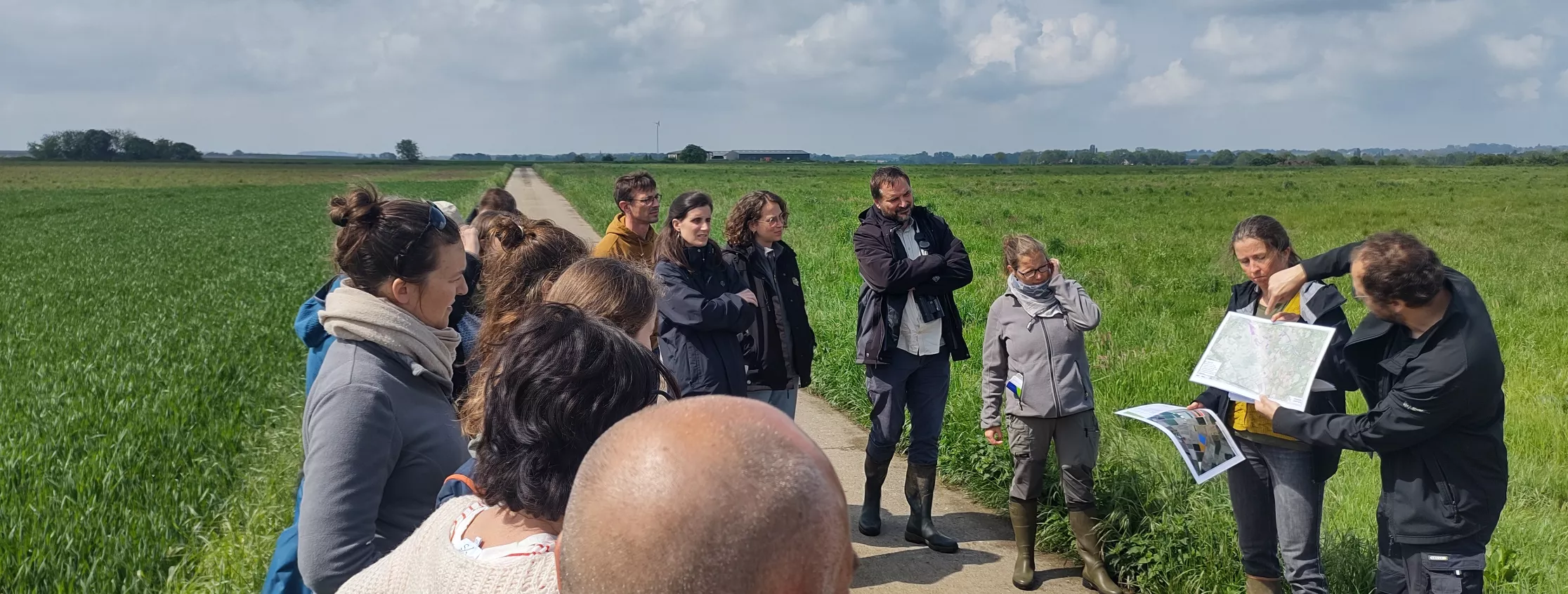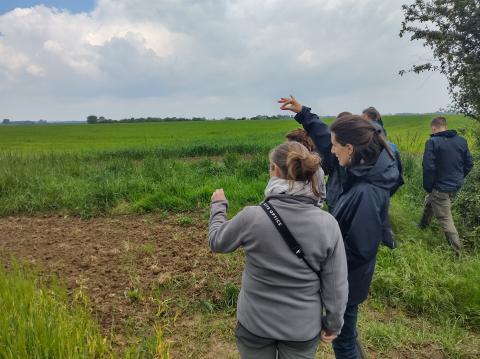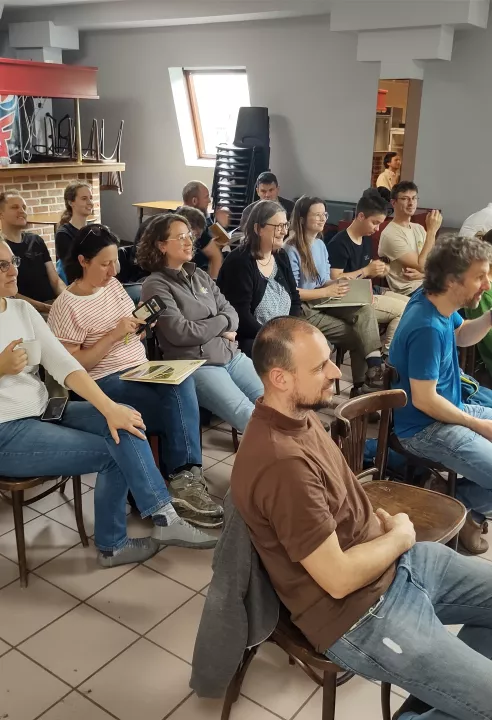On Tuesday 7 May farm advisors of the Flemish Land Agency (VLM) and of Natagriwal gathered in Hélécine. Natagriwal is a Wallonian non-profit organisation, responsible for concluding contracts with farmers for the implementation of agri-environment climate measures (AECMs). VLM is an administration of the Flemish government that does the same thing in Flanders. Representatives from the Agency for Nature and Forests (ANB) and the Institute for Nature and Forest Research (INBO) (Flanders) were also present.
n the morning, VLM and Natagriwal presented their organization of AECMs and their approach on working together with farmers, followed by an overview of the available measures at both sides of the language border. This was followed by an excursion to see how the measures are implemented on site, both in Flanders and in Wallonia.
A Wallonian farmer, who implements Flemish and Wallonian AECMs, closed the day with the following conclusion. He mentioned that there are still quite strong differences between the two regions, with advantages and drawbacks on both sides. He praised the expertise and collaboration with the farm advisors. He stated it is crucial to acknowledge the broader context in which farmers have to work, both in an environmental and an economic sense, in order to obtain an optimal implementation of the measures.
More info:
More information on the Flemish agri-environment climate measures for biodiversity and landscape www.vlm.be/beheerovereenkomsten (Dutch website)
More information on Belgium For Biodiversity (B4B) on the VLM website(Dutch) or the project websiteLife B4B
(French) information on Wallonian agri environment climate measures



